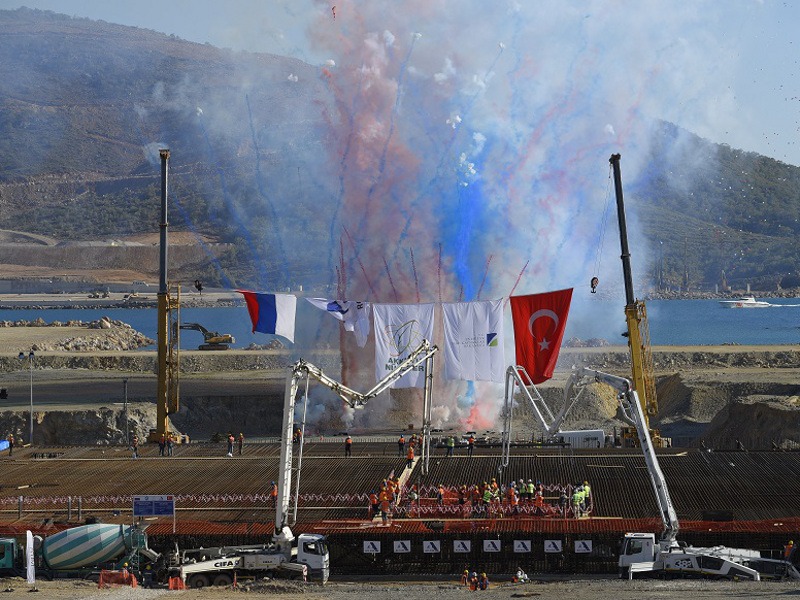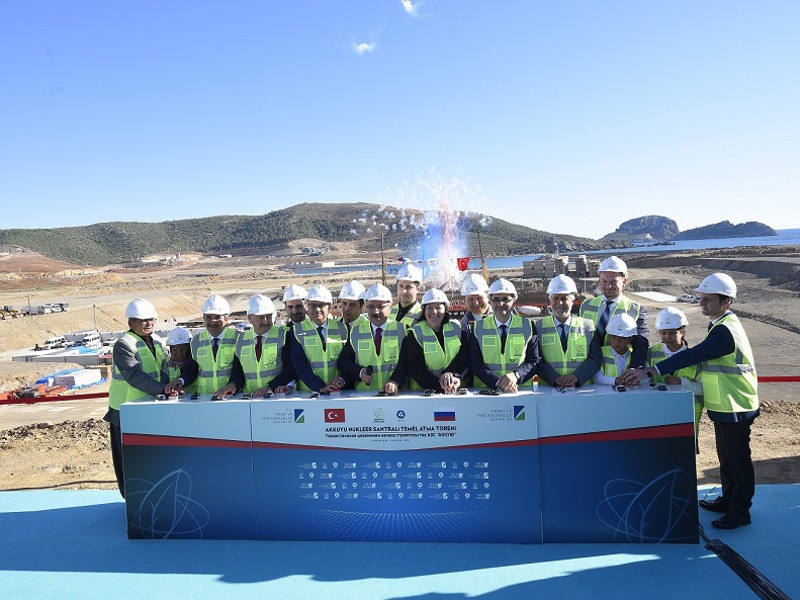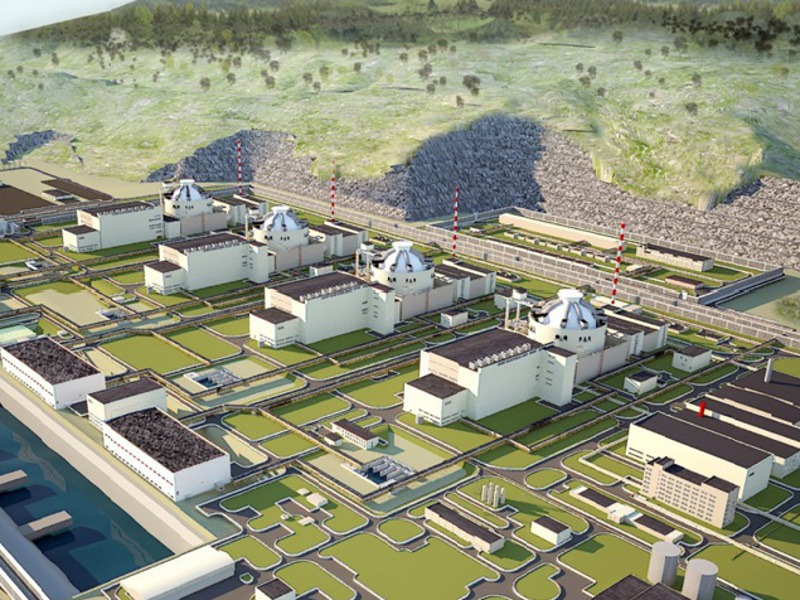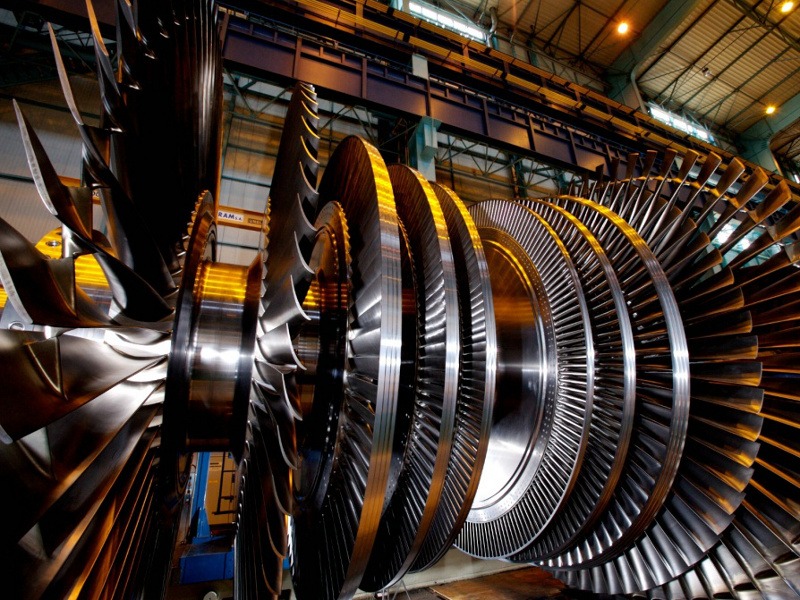Akkuyu nuclear power plant is being developed in the Mersin Province on the southern coast of Turkey, with an installed capacity of 4.8GW. Akkuyu Nuclear, a joint stock company, is the project developer and will also act as the operator.
Environmental impact assessment (EIA) for the nuclear power project was approved by the Ministry of Environment and Urbanization, Turkey, in December 2014. A 49-year energy generation license was granted in June 2017.
Construction license for the first unit of Akkuyu was granted by the Turkish Atomic Energy Authority in April 2018, while license for the second unit was granted in December 2018. Ground-breaking ceremony for Turkey’s first nuclear power project was conducted in April 2018. The first unit expected to commence operations by 2023.
The nuclear power plant is expected to have an operational life of 60 years, with an extension period of 20 years. It is expected to generate approximately 35 billion kWh of electricity a year, once operational.
Project Gallery
-

Akkuyu will be Turkey’s first nuclear power plant. Image courtesy of Akkuyu Nuclear.
-

Construction of the $20bn Akkuyu nuclear power plant began in April 2018. Image courtesy of Akkuyu Nuclear.
-

The Akkuyu nuclear project will have an installed capacity of 4.8GW. Image courtesy of Titan 2.
-

Alstom Power Systems is supplying main equipment packages of the steam turbine of Akkuyu NPP. Image courtesy of AAEM.
Akkuyu nuclear power plant development history
The Akkuyu project is being developed under an intergovernmental agreement (IGA) signed between the governments of Russia and Turkey in May 2010.
Akkuyu Nuclear JSC was formed by Rosatom Overseas (74.9%) along with Concern Rosenergoatom (21.9%), Atomstroyexport (2.2%), Inter RAO (0.8%), Atomtechenergo (0.25%), and Atomenergoremont (0.25%). The Russian companies proposed to completely fund the project development.
Rosatom has signed an agreement to sell 49% interest in Akkuyu Nuclear JSC, in June 2017, to the Turkish consortium of Jengiz Holding (Cengiz Holding), Kolin İnşaat Turizm Sanayi ve Ticaret, and Kalyon İnşaat (Kalyon İnşaat Sanayi ve Ticaret).
Akkuyu nuclear power plant make-up
Being developed on build-own-operate (BOO) model, the Akkuyu power plant will feature four Generation III+ VVER-1200 reactor units.
The power plant design is based on the Novovoronezh II nuclear power plant in Voronezh, Russia. Rosatom will supply nuclear fuel for the entire life of the plant, along with managing its disposal.
The nuclear island of the power project will comprise four power units having a reactor plant and a turbine plant each. The primary circuit of the reactor plant includes reactor coolant loops, reactor coolant pumps, and heating parts of four steam generators and one steam pressurizer.
The secondary circuit will comprise steam generating part of steam generators, fresh steam conduits, one turbine unit, condensate pumps, low-pressure regenerative heaters, turbine condensate system, deaerators, and feed water system.
The turbine unit will be equipped with condensing unit, regenerative installation for heating of feed water, and separators.
Other auxiliary facilities supporting the nuclear power unit will include a fuel storage unit, power supply unit, a ventilation stack, emergency diesel generator station, and a water treatment building.
Electricity transmission
Turkish Electricity Trade and Contracting (TETAS) has agreed to purchase 70% of the electricity generated by the first two units and 30% from that produced by the remaining two units. The remaining electricity will be sold in open market.
Contractors involved
Atomstroyexport is the general contractor, while Titan 2 was engaged as the main construction contractor for the Akkuyu nuclear power plant.
TVEL is the supplier of nuclear fuel for the plant, while Atomenergomash is supplying the nuclear island sets and the turbine island for the project.
Turbine Technology AAEM, a joint venture between Atomenergomash and General Electric, and Alstom Power Systems are responsible for the steam turbine equipment for Akkuyu.
Atomenergoproekt is the project designer, while OKB Hydropress designed the nuclear island of the power plant.
Assystem will supervise the construction facilities and provide site inspection services during construction and installation phases. Cengiz İnşaat Sanayi ve Ticaret is supplying hydraulic engineering structures for the Akkuyu nuclear power plant, under a turnkey contract.
